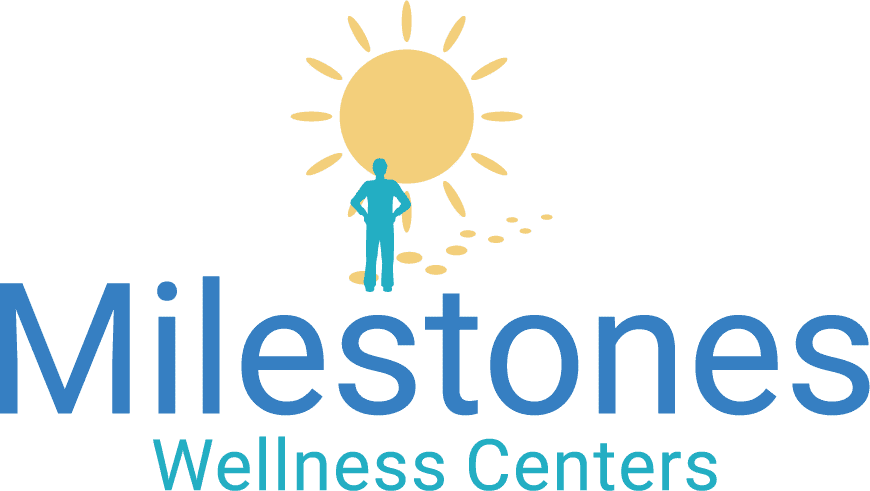What Are Addiction Triggers
Triggers in addiction vary greatly depending on the person and can be any of many different things. In simplicity a trigger is anything that causes an individual to bring back thoughts, feelings, memories, or the desire to use a substance of addiction. Because of this a trigger can be almost anything from a smell, sound, location, song, or even internal cues such as depression, social anxiety, among many other things. The first step and an extremely important one in any addiction treatment is identifying your personal triggers. Having an understanding of your triggers is crucial so that you can learn coping strategies to assist in preventing relapse when your triggers are present. And everyone has triggers when it comes to addiction, but are specific to you.
As mentioned there is almost an infinite number of possible triggers for a person. But triggers can be grouped into four main categories. This is helpful for you to know so that you can start to notice what triggers you have in each area. The main categories for triggers are environmental, emotional, behavioral, and psychological. Environmental triggers are people, places, and things. Some of the more common environmental triggers are being in specific places, such as places where you used to use substances. Another commonly associated environmental trigger is being around individuals that are actively using substances or that you used to use substances with. Situations with individuals can also be a trigger such as the end of a romantic relationship or stress from work or school. Even happy events can be environmental triggers like that of vacations or any celebration. Some of the areas in the things category could be things on television or movies, social media, or marketing materials. As you can see this is a short list of the huge potential for environmental triggers. It is important to try to avoid any of these that you identify would be a trigger to cause thoughts or desires to use substances.
The next category of triggers is that of emotional, which is any internal state that can lead to a relapse. The most common are stress, anxiety, and depression. However, some may also have positive emotions as triggers when experiencing joy. Truly any emotional state can be a trigger such as boredom, anger, or loneliness, if that emotional state brings about thoughts or desires to use a substance then that emotion is one of your triggers. For emotional triggers you will need to pay attention to see which emotional states cause you thoughts or desires for substance usage. Then knowing how to identify which situations, people, places, things or anything that will result in these emotional responses, so that those can be avoided to prevent relapse. Not everything is easily avoidable in which you would want to practice harm reduction to mitigate as much of the emotional response and have support in place to stop any potential relapse.
The third category of triggers are behavioral. These behavioral triggers are habits or activities which can cause any thought or urge to use a substance. Like the other areas of triggers these behavioral triggers can vary greatly depending on the person. Some examples of these triggers having unhealthy eating habits, poor sleep routines, missing counseling sessions, having too much idle time, among others. The best way to decrease the chances of behavioral triggers is to create routines, especially those that are healthy and avoid any activities which are associated for you with substance usage.
The final category of triggers are that of psychological triggers. These triggers are often seen in trauma, abuse, or dysfunctional relationships which cause the person to abuse substances as a means of a coping mechanism. Again like all other categories exactly what is a psychological trigger for a person will vary greatly. Most psychological triggers need to assisted with adaptive and healthy coping strategies and therapy. An individual will need to come to peace and have an understanding of the situation, or get out of the situation to avoid such triggers and to stop substance abuse as the coping mechanism. These are often not as easily noticed on your own and will need assistance from a behavioral health professional.
Common Relapse Triggers
One of the most commonly discussed relapse triggers is Hungry, Angry, Lonely, Tired or more commonly referred to by the acronym H.A.L.T. These triggers are not necessarily and directly related to substance abuse itself, but these triggers will have a large impact on you overall decision making ability. H.A.L.T. is used in recovery to help people understand their emotional triggers and the increased risk of relapse. To explain this, think of hunger. In the situation that a person is living a very health lifestyle and diet, hunger could cause them to make poorer eating choices. And the stronger the trigger of hunger is the better the chance the individual will eat any food that is available regardless of the nutritional value of that food.
As hunger may not illicit any response to substance abuse, it does show how these triggers can cause someone to change their behavior based on the severity of that trigger. Anger is a trigger that may cause a person to utilize substances to cope with the emotion or to bring them down from an elevated state. Loneliness is another trigger that is often related to substance abuse. In times of loneliness a person may feel depressed and use the effects of illicit substances as a means of coping with the depression. However loneliness does not always equate to depression and substance abuse could just be triggered as a way of entertainment. Tiredness can also lead some towards substance abuse. Some may have abused substances for their effects of giving the individual more energy. Therefore having a healthy routine including ample sleep and periods of rest is of importance.
Many challenging emotions are related to relapse with substance abuse as many have learned to use substances as their method of coping. Unfortunately challenging emotions are a part of life and something that affects everyone at different times. As these are unavoidable it is possible to learn health means of coping with such emotions to avoid them from causing relapse on substances. There is a vast amount of coping strategies which can be used both internal and external. Often working with a therapist is a good way to start to learn how you process such challenging emotions and they can teach you various coping strategies. Other ways that individuals cope is by social support, which it is important for those in recovery to have strong social support systems in place for this reason. Also healthy distractions can assist people with coping such as running, exercising, playing a game, among any other attention needing activity which will keep the mind off of substance usage. Stress is one of the most common emotions associated with substance abuse. Stress is not a comfortable feeling, however once coping skills are learned, stress can be used as a motivating factor in life.
Over-confidence in recovery can also be a trigger to relapse. How this happens is that as a person becomes over-confident they stop paying attention to triggers or have a false sense of safety that identified triggers will not place them in any danger of relapse. As confidence is a great thing and anyone that is in a state of recovery should be extremely proud of their accomplishments, it is important to be realistic. Many individuals in recovery will have to avoid many triggers and be conscious of them for the rest of their lives. There is nothing wrong with avoiding anything that is a potential trigger and important to avoid them if they are a guaranteed trigger. Another aspect of over-confidence is when a person believes that they can use substances recreationally. This is highly ill advised as that can quickly cause a person to go back into active addiction. It is not just the usage as well as it is by introducing yourself to the triggers of people, places, and things, which are all required when active substance usage happens.




